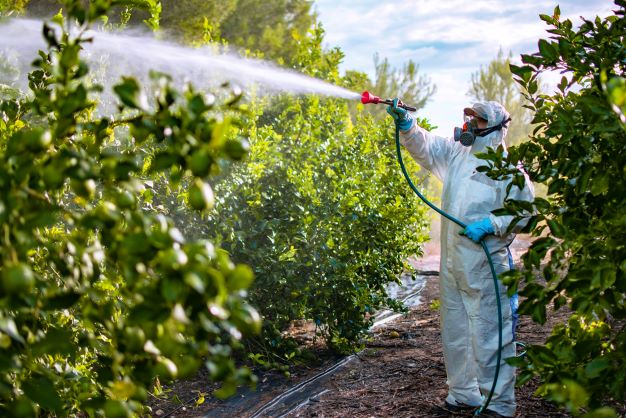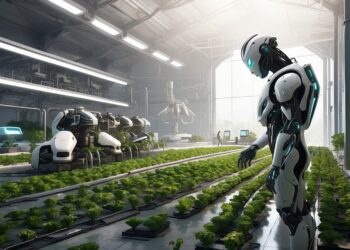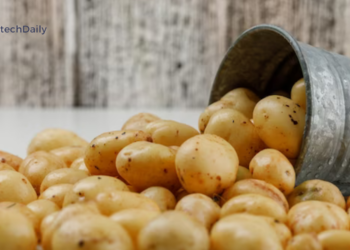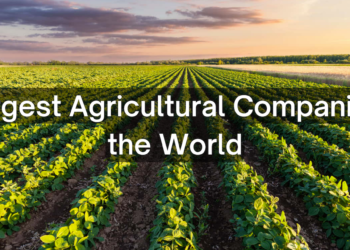This article explores the role of technology in reducing pesticide use in modern agriculture. The use of pesticides has long been a controversial issue, with concerns about environmental impact and potential health risks.
However, advances in technology offer new opportunities to reduce reliance on pesticides and promote more sustainable farming practices. This article will discuss some of the innovative ways in which technology is being used to reduce pesticide use, as well as the potential benefits for farmers, consumers, and the environment.
Pesticides are a vital tool in modern agriculture, helping to protect crops from pests and diseases and ensuring food security. However, the use of pesticides has long been a source of controversy and concern, with many people worried about the potential environmental and health risks.
In recent years, there has been a growing movement towards reducing pesticide use and promoting more sustainable farming practices. One of the key drivers of this movement has been the development of new technologies that can help to reduce reliance on pesticides and promote more environmentally friendly farming practices. In this article, we will explore the role of technology in reducing pesticide use and promoting sustainable agriculture.
The problem with pesticides
Pesticides are chemicals that are used to control pests and diseases that can damage crops. While pesticides can be very effective at protecting crops, they can also have negative environmental and health impacts.

Pesticides can contaminate soil and water, harming wildlife and potentially posing risks to human health. Additionally, the overuse of pesticides can lead to the development of pesticide-resistant pests, making it even more difficult to protect crops. This is why there has been a growing movement towards reducing pesticide use and promoting more sustainable farming practices.
Integrated Pest Management
Integrated Pest Management (IPM) is an approach to pest control that emphasizes the use of multiple strategies to control pests, rather than relying solely on pesticides. IPM typically involves a combination of cultural, biological, and chemical controls, including crop rotation, habitat management, and the use of natural predators. By using a combination of these strategies, farmers can reduce their reliance on pesticides and promote more sustainable farming practices.
Precision agriculture
Precision agriculture is a farming approach that uses technology to optimize crop production and reduce waste. Precision agriculture relies on a combination of data analysis, remote sensing, and variable rate technology to help farmers make more informed decisions about how to manage their crops.
By using precision agriculture techniques, farmers can reduce the number of pesticides they use by targeting pests and diseases more precisely, reducing the risk of overuse and minimizing environmental impacts.
Biological control
Biological control is another approach to pest control that relies on natural predators and parasites to control pest populations. This approach can be highly effective, as it targets pests in a way that is more sustainable and environmentally friendly than the use of pesticides.
Biological control is often used in conjunction with other pest control strategies, such as crop rotation and IPM, to create a more comprehensive pest management plan.
Genetic modification
Genetic modification is a controversial technology that has the potential to reduce the need for pesticides. By modifying the genes of crops, scientists can create plants that are resistant to pests and diseases, reducing the need for chemical pesticides. While the genetic modification is still a relatively new technology, it has the potential to revolutionize agriculture and promote more sustainable farming practices.
Organic farming
Organic farming is a farming approach that emphasizes sustainable practices and the use of natural inputs. Organic farmers typically rely on natural pest control strategies, such as crop rotation and biological control, to manage pests and diseases.

While organic farming is not a new technology, it is becoming increasingly popular as more consumers seek out organic products and farmers look for more sustainable approaches to farming.
Conclusion
The role of technology in reducing pesticide use is an important and exciting development in modern agriculture. By using a combination of approaches, including IPM, precision agriculture, biological control, genetic modification, and organic farming, farmers can reduce their reliance on pesticides and promote more sustainable farming practices.
These technologies have the potential to not only reduce the negative environmental and health impacts of pesticides but also to increase crop yields, reduce waste, and promote food security.
However, it is important to note that these technologies are not a silver bullet and that there is no one-size-fits-all solution to reducing pesticide use. Each approach has its own advantages and disadvantages, and farmers need to carefully consider which approach is best suited to their specific needs and circumstances.
Additionally, it is important to continue to research and develop new technologies and approaches to pest control, to ensure that we can continue to reduce our reliance on pesticides and promote more sustainable agriculture in the future.
Overall, the role of technology in reducing pesticide use is an exciting development in modern agriculture. By using innovative approaches such as precision agriculture, biological control, genetic modification, and organic farming, farmers can reduce their reliance on pesticides and promote more sustainable farming practices.
With the continued development of new technologies and approaches, we can look forward to a future in which agriculture is more sustainable, environmentally friendly, and efficient, while also promoting food security and ensuring a healthier planet for future generations.









